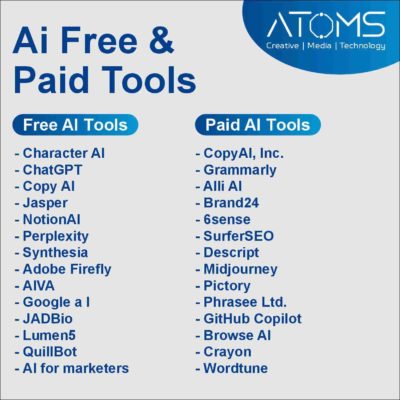How AI Optimization Improves Your Digital Marketing Strategy
Artificial Intelligence (AI) has transformed the way businesses approach digital marketing. From automating repetitive tasks to analyzing vast amounts of customer data, AI enables marketers to create smarter, data-driven campaigns that deliver measurable results. AI optimization takes this a step further—making AI systems more efficient, accurate, and effective. Let’s explore how AI optimization improves your digital marketing strategy.

What is AI optimization?
AI optimization refers to refining algorithms, models, and tools to enhance performance, reduce costs, and achieve better decision-making accuracy. In digital marketing, this means more precise audience targeting, improved personalization, and faster campaign execution. With the availability of free and paid AI tools, businesses have more resources than ever to optimize their marketing strategies.
Popular AI Tools for Marketing:
Free AI Tools: ChatGPT, Jasper, NotionAI, Adobe Firefly, Perplexity AI, Synthesia.
Paid AI Tools: CopyAI, Grammarly, SurferSEO, Brand24, MidJourney, Descript, and Wordtune.
Key Techniques for AI Optimization
1. Algorithm Selection and Tuning
Choosing the right algorithm and fine-tuning its parameters is crucial. For marketers, this means selecting models that best predict customer behavior, ad performance, or conversion rates.
2. Feature Engineering
By selecting and refining variables, AI models deliver more accurate insights. In marketing, this could include refining audience demographics, engagement history, or purchase patterns to improve targeting.
3. Hyperparameter Optimization
Finding the best combination of model parameters improves AI performance. Techniques like grid search, random search, and Bayesian optimization help digital marketers get maximum ROI from AI-driven campaigns.
4. Model Compression
AI optimization also reduces the size of models without compromising accuracy. For marketing, this means faster campaign execution and lower computational costs—ideal for businesses running real-time advertising.
5. Parallelization and Distribution
AI optimization enables marketers to process massive datasets simultaneously. This is particularly valuable for analyzing customer data across multiple platforms and channels.
Benefits of AI Optimization in Digital Marketing
Personalized Campaigns: Deliver hyper-targeted content to the right audience.
Improved ROI: Smarter ad spending with predictive analytics.
Faster Decisions: Automate campaign adjustments in real-time.
Scalability: Handle larger campaigns and datasets with ease.
Cost Efficiency: Reduce marketing spend while improving performance.
Conclusion
AI optimization is not just a technological upgrade—it’s a competitive advantage. By leveraging the right AI tools and optimization techniques, businesses can streamline their digital marketing, reach the right audience, and maximize ROI. The future of marketing is AI-driven, and companies that adopt optimization strategies today will lead tomorrow.
